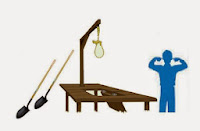Parshas Ki Savo - Stop, Drop, and “Four Score and Seven Years Ago...”

~ Thoughts on the Parsha ~ Parshas Ki Savo Stop, Drop, and “Four Score and Seven Years Ago...” By: Daniel Listhaus וְהָיָה כִּי תָבוֹא אֶל הָאָרֶץ אֲשֶׁר הֹ' אֱלֹ ק יךָ נֹתֵן לְךָ נַחֲלָה וִירִשְׁתָּהּ וְיָשַׁבְתָּ בָּהּ : וְלָקַחְתָּ מֵרֵאשִׁית כָּל פְּרִי הָאֲדָמָה אֲשֶׁר תָּבִיא מֵאַרְצְךָ אֲשֶׁר ה' אֱלֹ ק יךָ נֹתֵן לָךְ וְשַׂמְתָּ בַטֶּנֶא וְהָלַכְתָּ אֶל הַמָּקוֹם אֲשֶׁר יִבְחַר הֹ' אֱלֹ ק יךָ לְשַׁכֵּן שְׁמוֹ שָׁם “It will be when you enter the land that Hashem, your G-d, gives you as an inheritance, and you take possession of it, and dwell in it, that you shall take the first of every fruit of the ground that you bring in from your land that Hashem, your G-d gives you, and you shall put it in a basket and go to the place that Hashem, your G-d, will choose, to make His Name rest there.” - Ki Savo 26:1-2 The parsha starts off with a rather unusual process. After dwelling in Eretz Yisroel , one must bring his bikkurim (first

